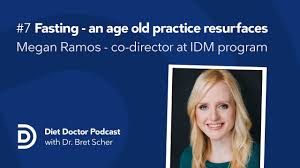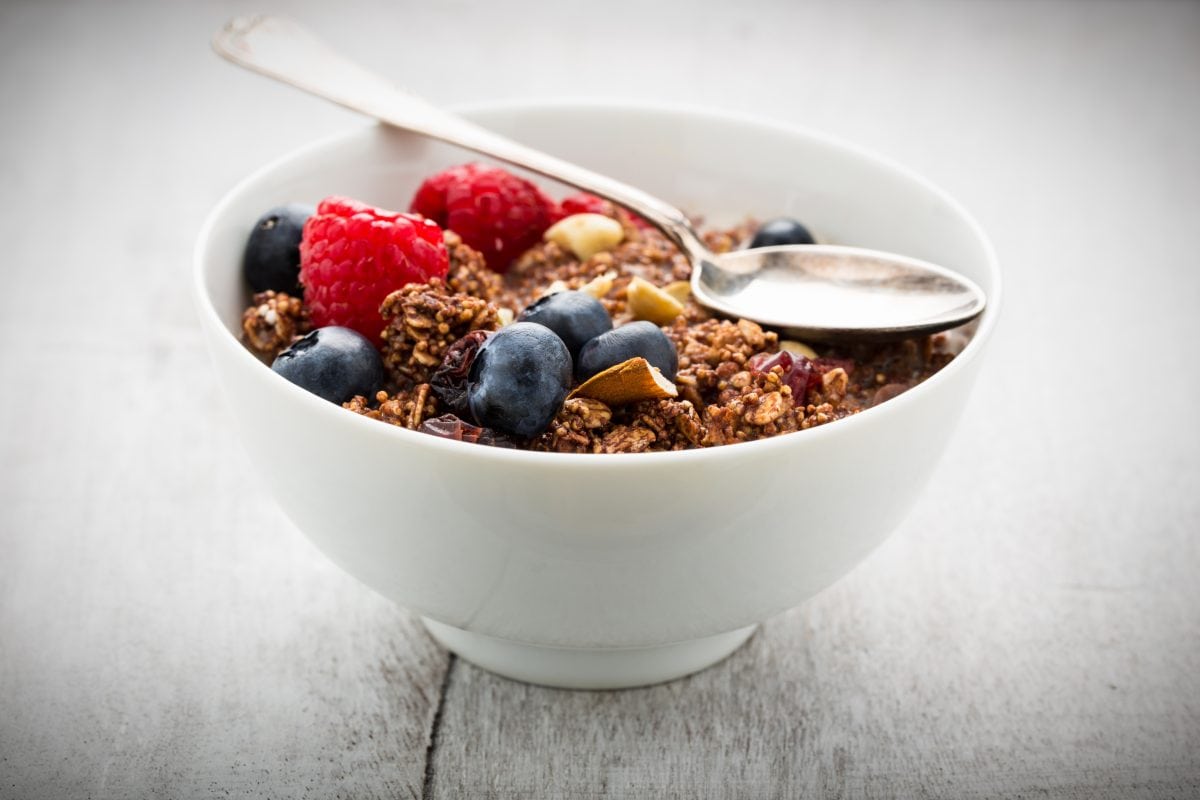“Breakfast is most important meal of day.”- Said in a thick eastern European accent by Colossus in the movie Deadpool. The statement has become so ingrained in our society that even a CGI created super hero quotes it as if it were fact.
What if I told you breakfast was the most important meal to skip each day? Would you dismiss the comment since it goes against everything you have heard up until now? Well, it turns out, it may be true. And the science backs it up.
Science Quality Matters…A Lot
First, where did the concept of breakfast being the most important meal come from? Would you believe cereal companies, and other food companies who have a vested interest in more people eating cereal? Yep. Bias and hidden motives over-rides scientific evidence once again.
This article in the Guardian is a good summary of how this came to be. Additionally, according to the book Three Squares: The Invention of the American Meal, Abigail Carroll proposes that breakfast used to be comprised mostly of leftovers. There were no “breakfast foods.” It was simply another meal, nothing unique. But it did not take long for Kellogg’s to start promoting breakfast cereals, and suddenly it was expected that we eat specific “breakfast foods.”
What followed was a collection of media talent and poor science to elevate breakfast from just another meal, to “The Most Important Meal of the Day.” In fact, the claims were clear. If you skip breakfast you will have no energy, your metabolism will grind to a halt, and you will suffer from low blood sugar. You will gain weight and over-eat the rest of the day.
Unfortunately, these drastic clams were derived from poorly run observational studies. Obese people skip breakfast. Therefore, skipping breakfast must make you obese, right? Not so fast.
Could it have been obese people try to reduce calories and therefore skip breakfast?
In an observational trial, we can’t prove which theory is correct. All it tells us is that obese people skip breakfast. It tells us nothing about why, and what effect that may have on their health.
But cereal marketing firms will jump on that evidence and claim that skipping breakfast makes you obese. That’s scientific hogwash.
Better Quality Science
Fortunately, we now have randomized trials to investigate these claims. One study demonstrated that eating breakfast had no impact on resting metabolic rate, and another demonstrated that eating or skipping breakfast had no direct impact on weight loss.
Not all the science is faulty. The claim that missing meals can slow your metabolism is true, somewhat. It turns out that prolonged starvation of more than three days triggers a survival reflex resulting in a reduced resting metabolism. But that goes way beyond simply skipping breakfast. In fact, resting metabolic rate INCREASES in the first two days of a fast. So if we are only skipping breakfast, it is clear that our metabolism is safe.
The Case for Intermittent Fasting (IF)
Nail in the coffin. We can now put away the baseless claims that we need breakfast. But that still doesn’t mean we should skip it, right? Why would we want to skip breakfast?
I’m glad you asked……
One main reason to skip breakfast is that reducing our insulin and glucose levels allows our body to start breaking down fat stores. To make it sound technical, the concept of skipping breakfast is referred to as intermittent fasting, and it comes with numerous potential benefits.
In addition, some scientists believe intermittent fasting is the closest thing to the fountain of youth. It turns out that calorie restriction has increased survival in all sorts of animals, and shows promise for humans as well. But who wants to severely restrict their calories every day? In modern day society, that becomes nearly impossible.
Enter intermittent fasting. IF allows us to experience the physiological effects of calorie restriction without having a critically negative impact on our social existence.
Here is how it works. You set up an “eating window,” noon to 7pm, and a “fasting window,” 7pm to noon the next day. The key is that our bodies don’t enter a true fasting state until more than 10 hours after our last food intake. This is the point where our glucose and insulin levels are low enough to allow for lipolysis (the body breaking down fat stores for energy instead of using glucose circulating in the blood). In the above example, the fasting window is 17 hours, thus giving you 7 hours of fat breakdown. There are other versions of IF, but this is the one that I have seen works best for most people.
Food Quality Matters…A Lot
Now that I have made the case for trying intermittent fasting, I should be honest and tell you that intermittent fasting will not work for most of you.
Not until you improve the quality of what you eat.
If you eat mostly carbohydrates, simple sugars, and processed foods, then you don’t stand a chance. These foods cause rapid spikes and falls in glucose and insulin, throwing you into a cascade of hunger and cravings without a chance at extending the time between meals.
So, before you try IF, make sure you are eating nutrient dense, low sugar foods. Focus on lots of veggies, healthy fats (nuts, olive oil, avocados), appropriate proportions of animal fats and proteins, and a small amount of complex carbs. Once you do this, IF will be easily manageable.
Tips
-
Choose your IF days carefully. Make sure you will have control over the timing and food content of your first meal. You don’t want to get stuck eating “whatever is around” when you are hungry at 1pm after an 18hour fast. For best results, that first meal needs to be a healthy, nutrient dense meal low in simple carbohydrates and sugars.
-
Give it time! The first few times you experiment with IF, you may feel hungry and feel like you can’t survive. That feeling quickly passes with physical and psychological adaptation.
-
The initial psychological barrier to IF seems imposing. In reality, it’s simple to implement and stick to. Once you get over the initial hurdle in your mind, you will see.
-
Embrace the psychological benefits. IF allows you to know that you are in control of your feelings of hunger. You do not have to react to every small pang of hunger or food craving. You are in control, not the food.
So, Colossus should have said, in his thick Eastern European accent, “Breakfast is most important meal of day to skip. If you want.”
Don’t get me wrong. A few days each week, I look forward to my big plate of leftover veggies, spinach and kale over two eggs and a sprinkle of grass-fed cheese. It’s a great way to start the day. And the other three-to-four days, I look forward to skipping breakfast, knowing that I am burning my fat stores, lowering my insulin and glucose levels, raising my HGH, and possibly taking one step closer to the fountain of youth.
Give it a try and see what it can do for you.
Thanks for reading.
Bret Scher, MD FACC
Cardiologist, author, founder of Boundless Health
www.DrBretScher.com
Action item:
Pick a day this week when you have complete control over the timing of your lunch. Commit to practice IF that day. Stop eating at 7pm the night before, and don’t eat again until noon or 1 pm the next day. Make sure both of those meals are nutrient dense, veggie based meals with high quality fats and proteins. Expect to feel hungry, and remind yourself that you are in control of your hunger, not the other way around. You can do anything for 1-day. Then pick 2-days for the next week to try again. The more you do it, the more you adapt to it and reap the benefits.




